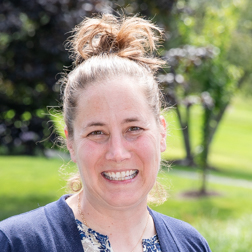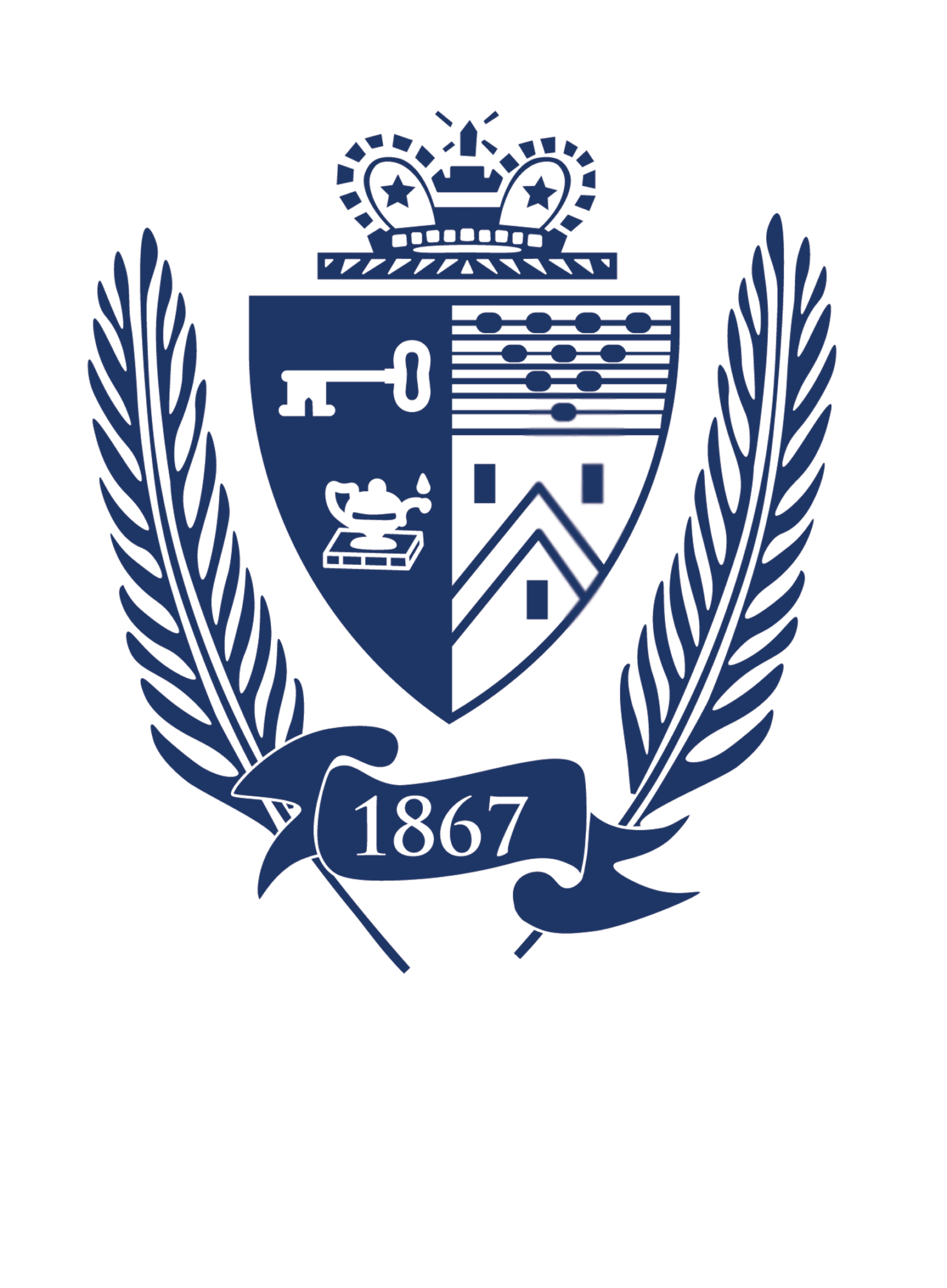The History and Social Sciences curriculum at The Storm King School prepares students to be informed, perceptive, and engaged citizens of their communities and the world. In all courses, students increase their knowledge about the many peoples, cultures, and events that have shaped human history.
Students are exposed to the moral and ethical issues that have faced other people in other times, in studying the struggles and triumphs that have marked human history, and in understanding the purposes that have divided people as well as those that have united them
Our Courses
Middle School History
Middle School History explores physical and human geography around the world.
READ MOREMiddle School History
Middle School History explores physical and human geography around the world. The course is divided into two sections. In the first, we examine general principles of geography, including weather and climate, natural resources, and the dynamics of population. In the second section, we explore the geography of specific regions across the globe. We will focus on human-environmental interaction, challenging our students to reflect on some of the current, real-life crises in each region and develop sustainable solutions. Our course also examines the geography and history of our local region, the New York Hudson Highlands. Throughout the course, students are introduced to key social studies skills, such as map and chart analysis, data presentation and interpretation, and critical thinking.
Global Studies History I
In this required ninth grade course, students explore the cultures and history of people across the globe.
READ MOREGlobal Studies History I
In this required ninth grade course, students explore the cultures and history of people across the globe, from the beginning of human development through ancient civilizations and the Middle Ages. By understanding the common struggles and achievements of past peoples, students better understand the shortcomings and successes of our current age. Along with studying history chronologically, we will focus on several themes that have impacted the course of human culture and civilization, including colonization and empire-building, different political systems, and technology. We will also look at many of the more day-to-day aspects of life such as family, religion, and food that have changed over time.
US Studies History
Offered to tenth graders, this course will review the important events and key issues related to US history.
READ MOREUS Studies History
Offered to tenth graders, this course will review the important events and key issues related to US history. Topics covered include the birth of the new nation, the Civil War, diversity and equality, government, and foreign policy. The Storm King School takes advantage of its historical location along the iconic Hudson River to further the students’ exploration of history with resources such as the Black Rock Forest Preserve, USMA at West Point, the FDR Museum, Washington’s Headquarters, Fort Montgomery, and many others.
Honors US Studies History
Honors United States history is a thematic examination of the important events in United States History for tenth grade students.
READ MOREHonors United States History
Honors United States History is a thematic examination of the important events in United States History for tenth grade students. Students explore essential questions in depth such as “What is the role of government?”, “How does a country become a great power?”, and “How can equal rights be guaranteed for all?” Through their studies, students connect key terms and deepen their understanding of history. The area of content serves as an avenue to improve in important skill areas. Students assess their strengths and weaknesses and work to improve in reading comprehension, critical thinking, and analysis, writing, individual and group work, all in preparation for the rigors of college work in the social sciences.
Comparative Government
This course examines American as well as other government systems and ideas of government, and justice systems around the world.
READ MOREComparative Government
This course examines American as well as other government systems and ideas of government, and justice systems around the world; not only from a traditional teaching perspective, but also from the knowledge of students who come from other countries explaining their cultures. The class spends quite a bit of time on different constitutions, but pays particular attention to the American Constitution. Students are eager to act as members of the “Supreme Court,” assessing whether or not they come to the same decisions and why.
Microeconomics/ Advanced Microeconomics
Microeconomics/Advanced Microeconomics
Microeconomics and Advanced Microeconomics are offered in alternating years. The course introduces the main principles and concepts of microeconomics. The study of microeconomics focuses on the actions and decisions of individuals, companies, and industries. A fundamental characteristic of this course is the occasional integration of concepts of macroeconomics as well in an effort to study economics holistically. Students will examine microeconomics from the viewpoint of consumers and investors. The course starts by gaining a better understanding of the fundamental philosophies and systems of economics followed by the principles of personal finance, supply and demand, business and labor, prices, inflation, investing, firms, markets, and entrepreneurialism. Throughout the course, students engage in projects that enhance their learning. For example, students participate in team projects on the stock market, entrepreneurialism, and business planning.
Macroeconomics/Advanced Macroeconomics
Macroeconomics and Advanced Macroeconomics are offered in alternating years.
READ MOREMacroeconomics/Advanced Macroeconomics
Macroeconomics and Advanced Macroeconomics are offered in alternating years. This course introduces the main principles and concepts of Keynesian macroeconomic theory. The study of macroeconomics focuses on the behavior and performance of an economy as a whole and the aggregate changes in an economy related to factors such as unemployment, growth rate, gross domestic product and inflation. Throughout the course, students engage in group work with their fellow classmates that enhances their learning. In addition to their theoretical study, students will examine macroeconomics from their viewpoint as global citizens interested in and participating in the global economy.
Economics: Personal Finance & Business
This course introduces the concepts of owning and operating a business.
READ MOREEconomics: Personal Finance & Business
This course introduces the concepts of owning and operating a business, which include the rewards and challenges of entrepreneurship and the details of developing a successful business plan. Additional topics include major national and global influences on businesses, money and banking, the importance of marketing a product or service, human resources management, developing and retaining employees, financial management, as well as technology in the workplace. Students will also gain an understanding of managing their personal finances, career planning, making intelligent consumer decisions, the basics of credit in the marketplace, and the principles of risk management.
Introduction to Law
Students taking Introduction to Law will explore the foundations of the American legal field.
READ MOREIntroduction to Law
Students taking Introduction to Law will explore the foundations of the American legal field, as well as develop strong oral and written advocacy skills. The course concentrates on four pillars: constitutional law, torts, contracts, and criminal law. A shorter unit will cover other key legal subjects, such as property law, administrative law, and international law. Students will learn primarily by reading and discussing actual court cases; discussions will employ the Socratic method of question and answer that is used extensively in law school. In addition, students will learn how to prepare briefs and form oral arguments. The course will conclude with a moot court simulation, where students will have the opportunity to argue a complex legal case in front of a panel of judges. Beyond giving interested students an understanding of the legal field as a possible profession, the course is designed to help all students become more informed citizens and foster their ability to use advocacy and logical reasoning to address current problems.
Global Studies History II
This elective course offers eleventh and twelfth grade students the opportunity to continue their study of World History.
READ MOREGlobal Studies History II
This elective course offers eleventh and twelfth grade students the opportunity to continue their study of World History after having taken the required 9th grade Global Studies History I class. Students will continue to strengthen skills such as interpretation, analysis, and evaluation of primary and secondary sources: both textual and visual. Students will make connections between different time periods, discussing and defending historical arguments effectively through presentation and written skills. The area of content will begin around the year 1,200 CE, and include the cultural, economic, political, and social developments that have shaped the world from that time period onward.
Psychology/ Advanced Psychology
Psychology is a field of study with a wide range of applications. This course is designed to introduce students to the core principles of the discipline.
READ MOREPsychology/Advanced Psychology
Psychology is a field of study with a wide range of applications. This course is designed to introduce students to the core principles of the discipline. It will provide a framework for the exploration of a variety of topics including but not limited to social influences on human behavior, the causes and treatments of various mental illnesses, personality traits and their roots in our development, and the long-term impact of prolonged stress. Students will have the opportunity to engage in cooperative projects wherein they will design and conduct their own psychological experiments using techniques they learn in class. By the end of the semester, students who take this course will be able to create detailed diagrams of the brain, recognize the stages of general adaptation syndrome in their own stress response, apply attribution theory in their daily lives, and much more. Advanced Psychology uses the David Myers AP textbook. The pace, number of topics, quantity of reading, and writing will be at a significantly higher level in the Advanced Psychology class. Students have the option of taking the AP exam.
International Relations
Students taking International Relations will be provided with a framework for studying the complexities of timely international and historic issues.
READ MOREInternational Relations
Students taking International Relations will be provided with a framework for studying the complexities of timely international and historic issues while examining United States foreign policy. In this course, students will pay close attention to current events, global problems, and their historical context. They will be expected to participate in regularly held discussions, debates, and simulations related to international relations. Students will examine the issues from historical, cultural, and political perspectives by actively reading current scholarship on each topic. Ultimately, students will develop their own views on the topics and sharpen their skills at forming persuasive and logical arguments that express those positions. Multiple units culminate with a role play activity that could include a Congressional hearing, a meeting of the National Security Council, or an election campaign forum. Units covered include: The United Nations, The Role of the US in a Changing World, Genocide, Climate Change, China, Russia, and the Middle East. Throughout the course, the ‘4 Cs’ will be emphasized: Communication, Collaboration, Critical Thinking, and Creativity. Students interested in participating in our Model UN Club may find particular interest in this course.
Startups, Sustainability, & Stewardship
The Startup, Sustainability & Stewardship course is for those driven students who aspire to change the world.
READ MOREStartup, Sustainability & Stewardship
The Startup, Sustainability & Stewardship course is for those driven students who aspire to change the world, at least in their corner, with their entrepreneurial ideas in the context of global trends like sustainability and/or stewardship. Today, young people all over the world want to have a say in their future. One pathway is via ideation led innovative startups. But students need a roadmap of the startup ecosystem–from Forming to Storming to Norming to Performing: the process will allow students to understand their entrepreneurial spirit and to answer the question, ‘Do I have what it takes to be a startup founder?’ The approach includes interactive lectures, case studies, and team (startup) projects all with the emphasis on engagement. Primary sources with real world examples are read and discussed. There is great emphasis on public speaking communication skills. In addition, students will also be able to hone in on research, analysis, suggestions, feedback, iterating and pivoting, and be able to engage in discussions with business-minded professionals.
Advanced Philosophy
Advanced Philosophy is a foundational course that invites students to explore the major branches and methods of philosophical inquiry.
READ MOREAdvanced Philosophy
Advanced Philosophy is a foundational course that invites students to explore the major branches and methods of philosophical inquiry, encouraging critical thinking, ethical analysis, and the pursuit of wisdom. Through diverse philosophical traditions and thought experiments, students will confront timeless questions about knowledge, reality, ethics, and the nature of society. The course incorporates key Western philosophical traditions, applied ethical debates, and an introduction to Eastern philosophical perspectives, giving students a well-rounded view of global philosophical thought. This course fosters logical reasoning skills, awareness of ethical principles, and an appreciation for the complexity of human thought and morality.
AP World History
AP World History is a challenging, college-level course that explores key developments and interactions across global regions from approximately 1200 CE to the present.
READ MOREAP World History
AP World History is a challenging, college-level course that explores key developments and interactions across global regions from approximately 1200 CE to the present. The curriculum is organized into nine historical units and examines overarching themes, including humans and the environment, cultural developments, governance, economic systems, social structures, technology, and globalization. Students will analyze primary and secondary sources, construct evidence based arguments, and develop critical thinking and writing skills. The course emphasizes historical reasoning processes, such as comparison, causation, and continuity and change over time, to foster a deeper understanding of world history’s complexities. AP World History requires a significant commitment to reading, analytical writing, and preparation for the AP exam. A strong background in global studies and well developed study habits are recommended for success in this rigorous course.
AP Us History
The AP U.S. History course is an intensive semester-long program designed for students preparing to take the AP U.S. History exam at the end of the course.
READ MOREAP US History
The AP U.S. History course is an intensive semester-long program designed for students preparing to take the AP U.S. History exam at the end of the course. It follows the AP curriculum, exploring nine historical time periods through seven overarching themes. This course demands a rigorous reading schedule and strong study skills, building on the foundation provided by the required 10th-grade U.S. History course. A solid background in U.S. Studies and/or the Social Sciences is highly recommended. Success in this course requires excellent study habits, a high level of motivation, and a commitment to mastering key skills such as reading, source analysis, information acquisition, and writing.
AP African American Studies: History
This course is an intensive, college-level history class designed to prepare students for the AP African American Studies exam recently created by College Board.
READ MOREAP African American Studies: History
This course is an intensive, college-level history class designed to prepare students for the AP African American Studies exam recently created by College Board. Through a chronological and interdisciplinary approach, students will explore the rich and diverse experiences of African Americans, from the origins of the African diaspora to the modern-day struggles and triumphs of the Black community. The curriculum is organized into four key units: Origins of the African Diaspora (~900 BCE–16th century), Freedom, Enslavement, and Resistance (16th century–1865), The Practice of Freedom (1865–1940s), and Movements and Debates (1940s–2000s): Students will develop skills in source analysis, historical reasoning, and argumentation while engaging with a wide range of materials, including historical documents, literature, art, and data. This course emphasizes critical thinking, interdisciplinary analysis, and a deep understanding of African American history’s contributions to shaping the United States and the world. Strong reading, writing, and study habits are essential for success in this rigorous and rewarding course. This course is taught in tandem with the AP African American Studies: Literature course; students who plan to take the AP African American Studies Exam should sign up for both courses.
Meet the Faculty






Lisa Shrem
ASP - English Teacher
Co-Director Community Service
History & Social Science Teacher



